Seeds of Fire: A People’s Chronology
Recalling events that happened on this day in history.
Memories of struggle, resistance and persistence.
Compiled by Ulli Diemer
|
January 22, 1879
|
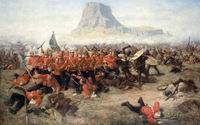
|
|
The Battle of Isandlwana. Zulu forces defeat a British army invading the Zulu kingdom.
|
|
January 22, 1891
|
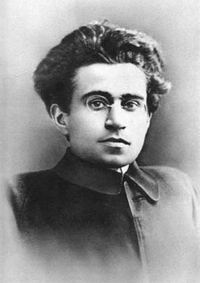
|
|
Birth of Antonio Gramsci (1891-1937), Italian Marxist, revolutionary and political theorist, known especially for developing the concept of cultural hegemony as a crucial means of maintaining capitalist rule. Gramsci stressed the need for popular education of working people to counteract the hegemony of the ruling class. Imprisoned by Italy’s fascist government from 1926 almost to the end of his life, he characterized his political attitude with a quote from Romain Rolland: “Pessimism of the intellect, optimism of the will.”
|
|
January 22, 1905
|
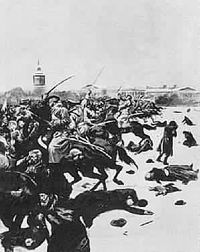
|
|
‘Bloody Sunday’ in Russia: a massacre of workers by the Czar’s soldiers leads to the outbreak of revolution. A peaceful demonstration of St. Petersburg workers, led by a priest, assembles at the Winter Palace, hoping to present a petition to Czar Nicholas II. They are singing hymns, dressed in their best clothes, and carrying portraits of the Czar to show their faith that the ‘Little Father’ will help them. Their trust in the Czar is repaid with bullets: without warning, troops fire into the terrified crowd; more than a thousand are killed. The next day, 125,000 workers go on strike protesting the massacre: the strikes spread like wildfire, and suddenly revolution is on the agenda. For the next two months, Russia is engulfed in a revolutionary upheaval that threatens to overthrow the regime, but ultimately falls short.(January 9 on the old Russian calendar)
|
|
January 22, 1933
|
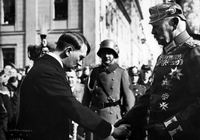
|
|
German President Hindenburg agrees to appoint Adolf Hitler as Chancellor. Hitler’s Nazi Party had won 33% of the vote in the recent Parliamentary elections.
|
|
January 22, 1953
|
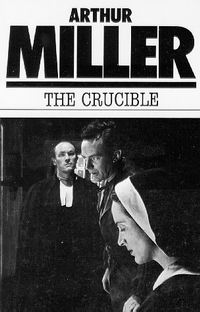
|
|
Arthur Miller’s play “The Crucible” opens on Broadway. The play is a dramatization of the Salem witch trials which took place in Massachusetts in 1692 and 1693. Miller wrote it as an allegory of McCarthyism, when the U.S. government engaged in a witch hunt of suspected Communists and their alleged sympathizers and ‘fellow-travellers’. Miller himself was convicted of ‘Contempt of Congress’ three years later, when he refused to name names before the House Committee on Un-American Activities.
|

